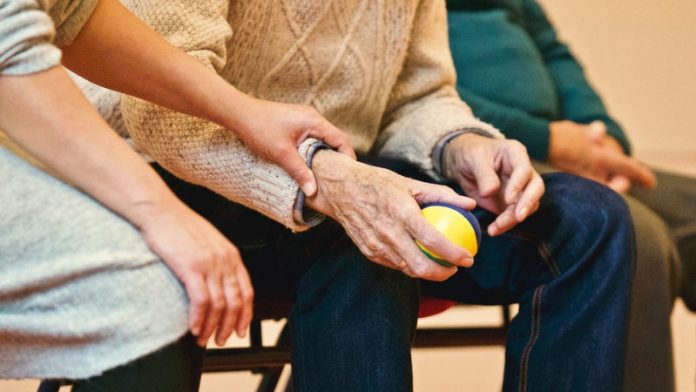
Until about 10 years ago, most clinicians only looked at the brain when finding ways to treat patients with Parkinson’s Disease.
In a new paper from University of Southern California, researchers explored the connection between the gut and the brain, how this could impact those with Parkinson’s disease, and the role exercise could play on improving gut health.
Clinicians are continuing to explore the idea that Parkinson’s disease goes beyond the brain and central nervous system.
Along with some of the more well-known symptoms, such as tremors and motor issues, people with Parkinson’s disease also have gastrointestinal issues, including constipation and bloating.
By understanding the mechanisms and the pathology of these deficits, the team hopes to find a way to treat individuals with Parkinson’s Disease more effectively with exercise.
In the paper, the team reported that people with Parkinson’s might experience gastrointestinal symptoms and others because the gut microbiome isn’t functioning properly.
They previously found how exercise can reduce some of the cognitive and motor symptoms in patients with Parkinson’s disease.
They suggest that some of these benefits might be because of the restoration we see in the gut microbiome.
The team compiled a lot of past research to explain how the gut is involved in Parkinson’s disease, including research in other, non-Parkinson disease populations, showing that exercise can help restore the gut microbiome.
They would like to perform a long-term study looking at how different exercise modalities, such as strength training and aerobic exercise, could restore the microbiome and potentially ease symptoms in patients with Parkinson’s.
If you care about Parkinson’s disease, please read studies about these high blood pressure drugs may prevent dementia, Parkinson’s, Huntington’s and findings of coffee may help fight common dementia and Parkinson’s disease.
For more information about Parkinson’s disease prevention and treatment, please see recent studies about scientists discover roots of Parkinson’s in the brain and results showing that this mental problem may be linked to Parkinson’s disease.
The study is published in PTJ: Physical Therapy & Rehabilitation Journal. One author of the study is Kaylie Zapanta.
Copyright © 2021 Knowridge Science Report. All rights reserved.



